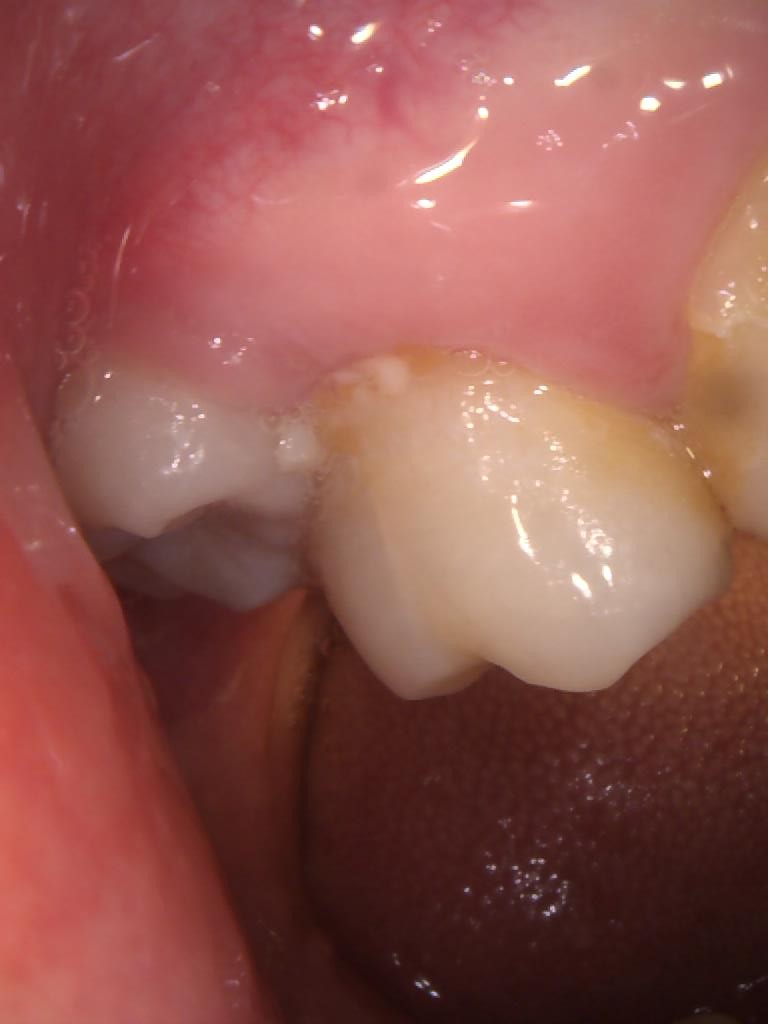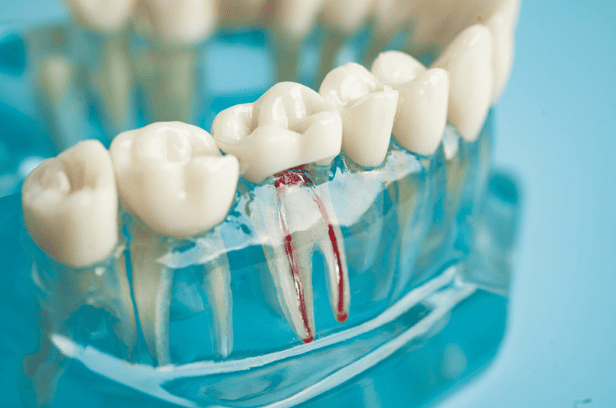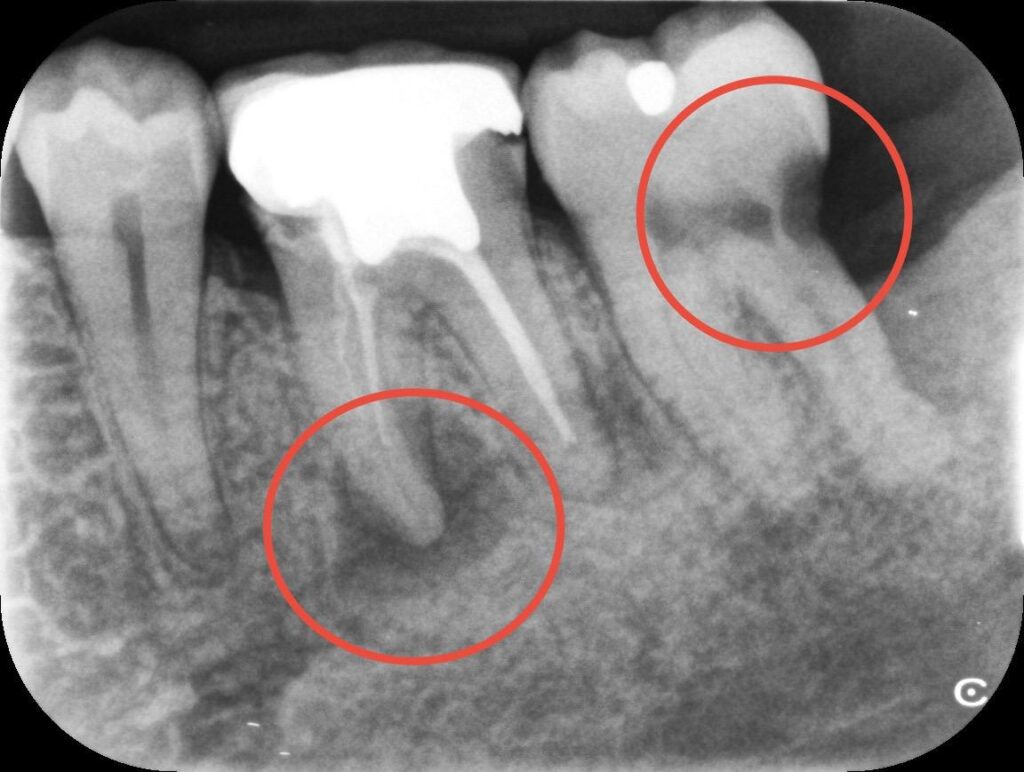Root Canal Treatment: Process, Costs, and Aftercare
Root canal treatment, also known as endodontic therapy, is one of the most common dental procedures. It effectively addresses symptoms like tooth sensitivity, gum swelling, and root inflammation, allowing patients to preserve their natural teeth, extend their lifespan, and avoid the issues associated with tooth extraction or the inconvenience of dentures. However, many people still have questions about the procedure, its costs, and post-treatment care. This article provides a comprehensive overview of root canal treatment, its necessity, and its benefits.

What is Root Canal Treatment?
Root canal treatment is a specialised dental procedure used to remove infected or damaged pulp tissue from within the tooth. The pulp is located at the centre of the tooth, and its infection can cause severe pain, swelling, and even tooth loss. Through root canal therapy, the dentist can remove the source of the infection, preserve the tooth structure, and restore the tooth’s function and appearance.
At our dental clinic, our experienced dentists can examine your teeth and provide professional root canal treatment to restore your oral health.
When is Root Canal Treatment Needed?

Infected or Inflamed Tooth Pulp
Typically, bacteria entering the pulp area cause sensitivity, pain, and gum swelling.
Tooth Damage
Deep cavities, cracked, or broken teeth can also damage the pulp.
A Closer Look at the Root Canal Treatment Process
1. Initial Consultation
The dentist will examine the oral condition and assess the pain described by the patient. An X-ray may be taken to further identify the infection’s location. If the infection is severe or the tooth structure is complex, the general dentist may refer the patient to an endodontist for treatment.
2. Commencing the Treatment
Local anaesthesia is used to numb the area and alleviate discomfort. The dentist will remove the damaged area of the tooth, clear the infected pulp, and disinfect the root canals. Medications will be placed into the canals to reduce inflammation, and a temporary filling will be applied. After this stage, the tooth will be sealed, and the patient will return for follow-up treatment.
3. Follow-Up Treatment
Once the medication has taken effect, the dentist will reopen the pulp chamber to remove the medication and further clean the root canals. The canals will be filled, and the tooth will be permanently sealed.
4. Tooth Restoration
After completing the root canal procedure, the dentist will often recommend a crown to protect the treated tooth.

Post-Treatment and Aftercare
Maintaining Oral Hygiene
Brush your teeth twice daily and use floss or interproximal brushes to clean between your teeth. Mild discomfort may occur after the procedure, and the dentist may prescribe antibiotics or pain relief medication.
Dietary Precautions
Teeth treated with root canal therapy are more fragile than regular teeth, so it’s advisable to avoid hard foods and reduce stimulation to the treated area.
Regular Check-ups
Follow-up visits as recommended by your dentist are crucial. Regular check-ups help identify potential issues early.
Risks of Root Canal Treatment
Improper treatment could lead to re-infection, requiring another round of root canal therapy.
Additionally, each treatment weakens the tooth, making it more susceptible to fractures. If the root canal treatment fails to thoroughly remove the infection, a surgical procedure, such as apicoectomy, may be necessary.
How to Avoid Needing Root Canal Treatment
Regular Check-ups
Dentists recommend regular oral check-ups every six months, along with professional cleanings.
Good Oral Hygiene
Brush your teeth twice a day and use dental floss or interproximal brushes for effective cleaning.
Early Intervention
Address issues like cavities and cracked teeth promptly to prevent the need for root canal treatment.
Costs of Root Canal Treatment
The cost of root canal treatment varies depending on factors such as the location of the tooth, the complexity of the procedure, and the dentist’s expertise.
General dentists handle most cases, but complex cases may require referral to a specialist, whose fees tend to be higher.
It’s advisable to discuss costs and insurance coverage with your dentist beforehand.
Conclusion
Root canal treatment is an essential procedure for saving damaged teeth, alleviating pain, and extending tooth longevity. Choosing a professional dentist and following their advice will help ensure a smoother treatment process and longer-lasting results. Maintaining good oral hygiene habits will also reduce the risk of needing root canal therapy and promote overall oral health.
Frequently Asked Questions
Can a tooth that has had a root canal still get cavities?
Although the nerve tissue has been removed, the tooth can still develop cavities if proper oral hygiene is not maintained. It is important to brush your teeth twice daily and use floss and interproximal brushes to clean effectively.
Is root canal treatment repeatable?
Yes, if the treated tooth becomes re-infected, it is possible to repeat the root canal procedure. However, each subsequent treatment may be less successful as the tooth becomes more fragile.
Does a tooth need a crown after root canal treatment?
It is generally recommended to place a crown on a tooth after root canal therapy. The treated tooth becomes more fragile and a crown can help prevent it from breaking.

Diestel & Partners - Your Trusted Dental Care!
Our expert team is here for emergency and routine care to keep your smile healthy. Call or WhatsApp us today!
- Emergency Contact: +852 2522 2099
- After Hours: +852 6071 4530
- WhatsApp: +852 9786 5178

